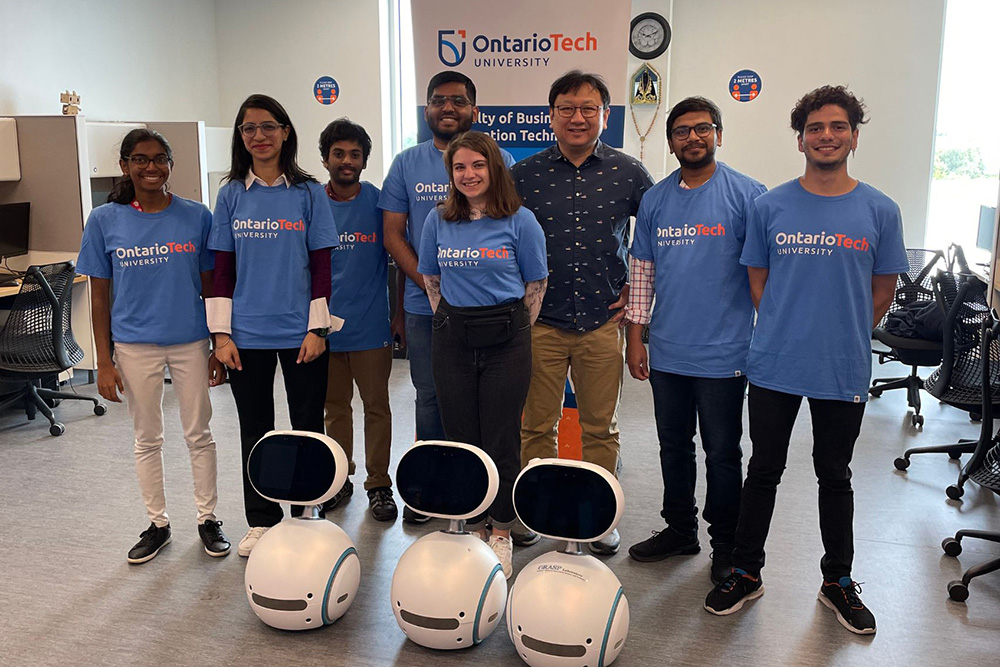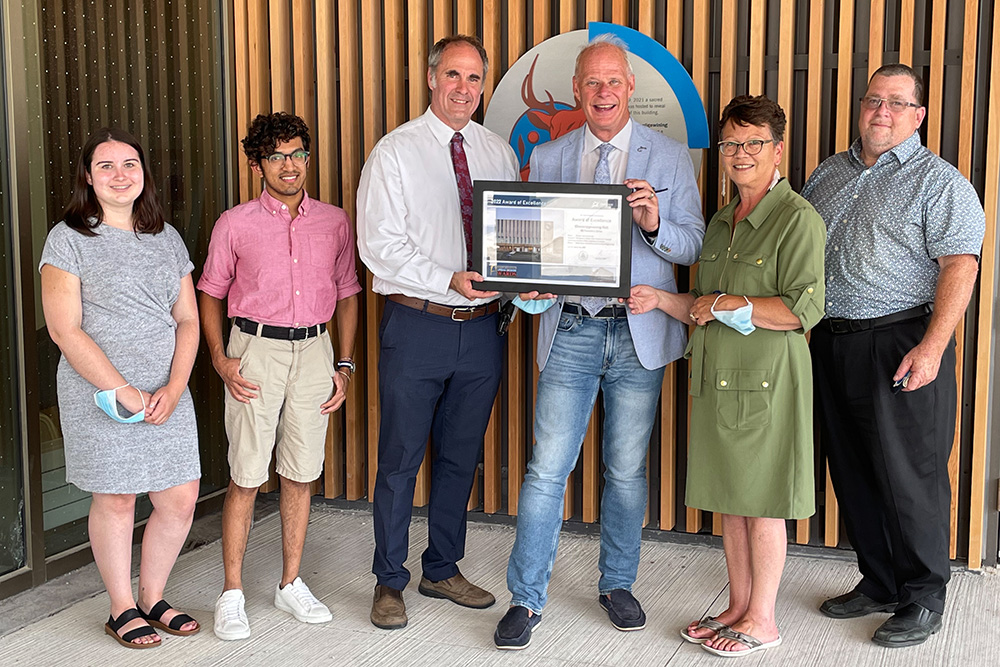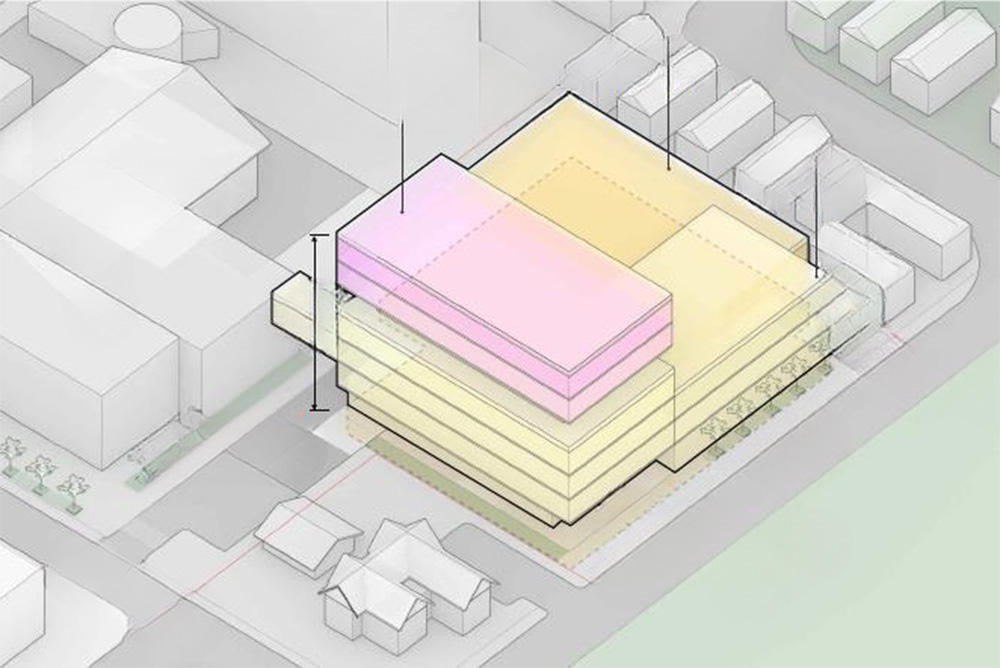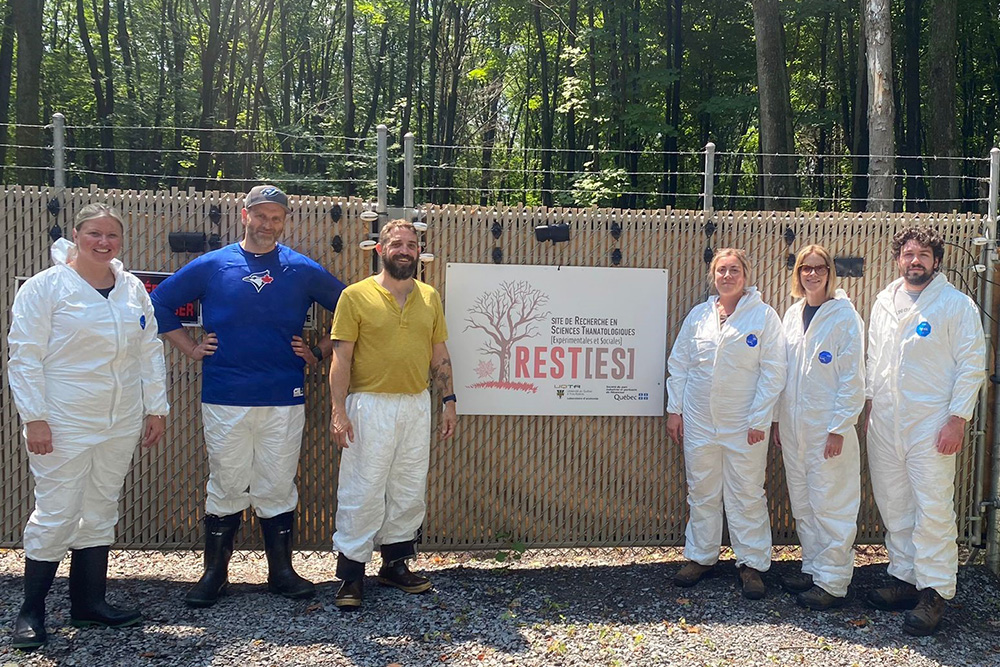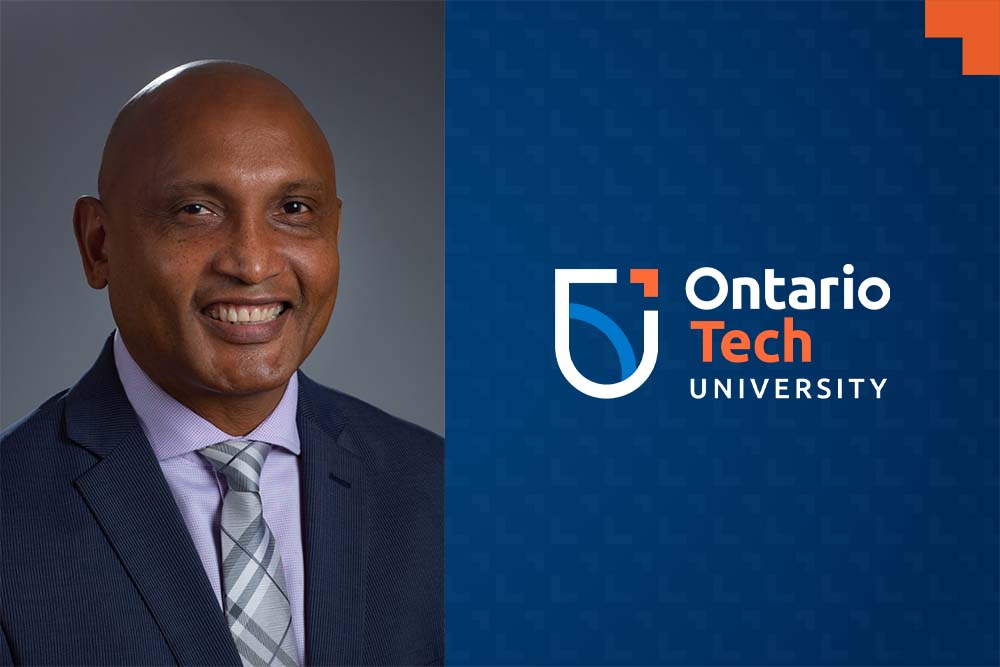News archives
July
Ontario Tech summer student from Ukraine exploring idea for a social robot to help alleviate stress and anxiety
July 29, 2022
Iryna Parkhomchuk’s internship through Mitacs, a Canadian non-profit research organization that helps connect university students with training placements related to industrial and social innovation, brought her to Ontario Tech University. She is one of more than 60 Ukrainian students taking part in the Mitacs Globalink Research Internship program across Canada this summer.
Ontario Tech researcher to evaluate youth vaping prevention program in Canada
July 26, 2022
To better-understand trends related to vaping, Ontario Tech University researcher Dr. Adam Cole of the Faculty of Health Sciences (FHSc) will test whether an American vaping prevention program for schools would help high schoolers in Canada.
Shawenjigewining Hall at Ontario Tech recognized with an Oshawa Urban Design Award
July 25, 2022
A year after opening its doors, Ontario Tech University’s iconic new building is the winner of a City of Oshawa Urban Design Award.
Ontario Tech University reaffirms long-term commitment to downtown Oshawa location
July 22, 2022
Ontario Tech will further enhance its long-term commitment to downtown Oshawa with the recent purchase of a parcel of land at 154 Bruce Street, adjacent to its existing operations in the 61 Charles Street Building.
Canadian forensic science experts to sharpen the accuracy of determining time since death after discovery of human remains
July 21, 2022
To develop new scientific approaches that will make time-of-death estimates more accurate in future investigations, the Natural Sciences and Engineering Research Council of Canada (NSERC) is investing a half-million dollars in a new five-year project being led by the Université du Québec à Trois-Rivières (UQTR; Dr. Shari Forbes), with support from research experts at Ontario Tech University (Dr. Theresa Stotesbury of the Faculty of Science) and Trent University (Dr. Aaron Shafer and Dr. Paul Szpak).
Ontario Tech expert receives federal grant for new research focused on race, gender and diversity
July 15, 2022
To expand existing understandings of injustice and marginalization experienced by Black LGBTQ populations, Ontario Tech University Critical Race Intersectional Theorist Dr. Wesley Crichlow has been awarded a major grant in the first competition of the Race, Diversity and Inclusion Fund from the Social Sciences and Humanities Research Council (SSHRC) of Canada.
